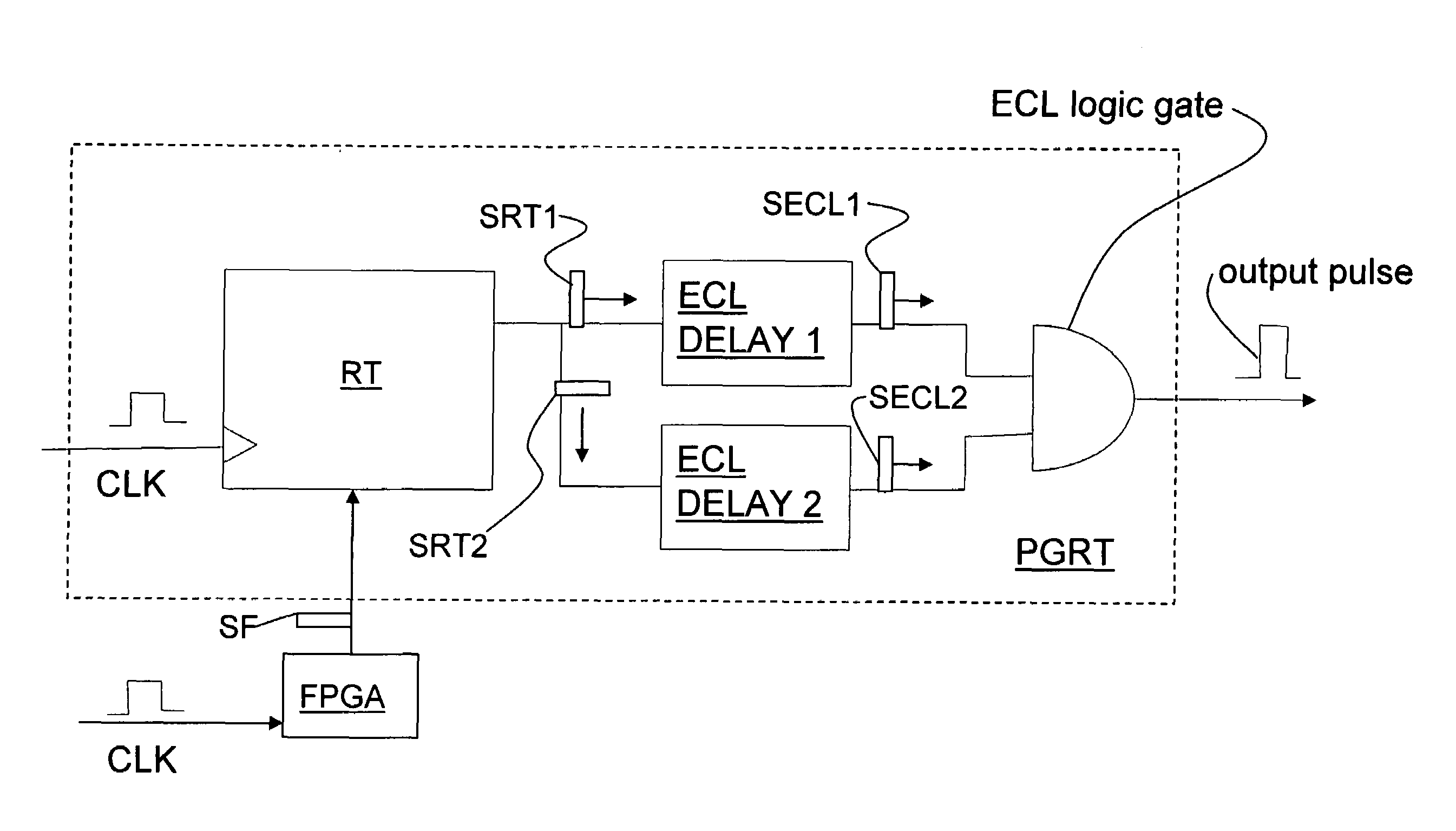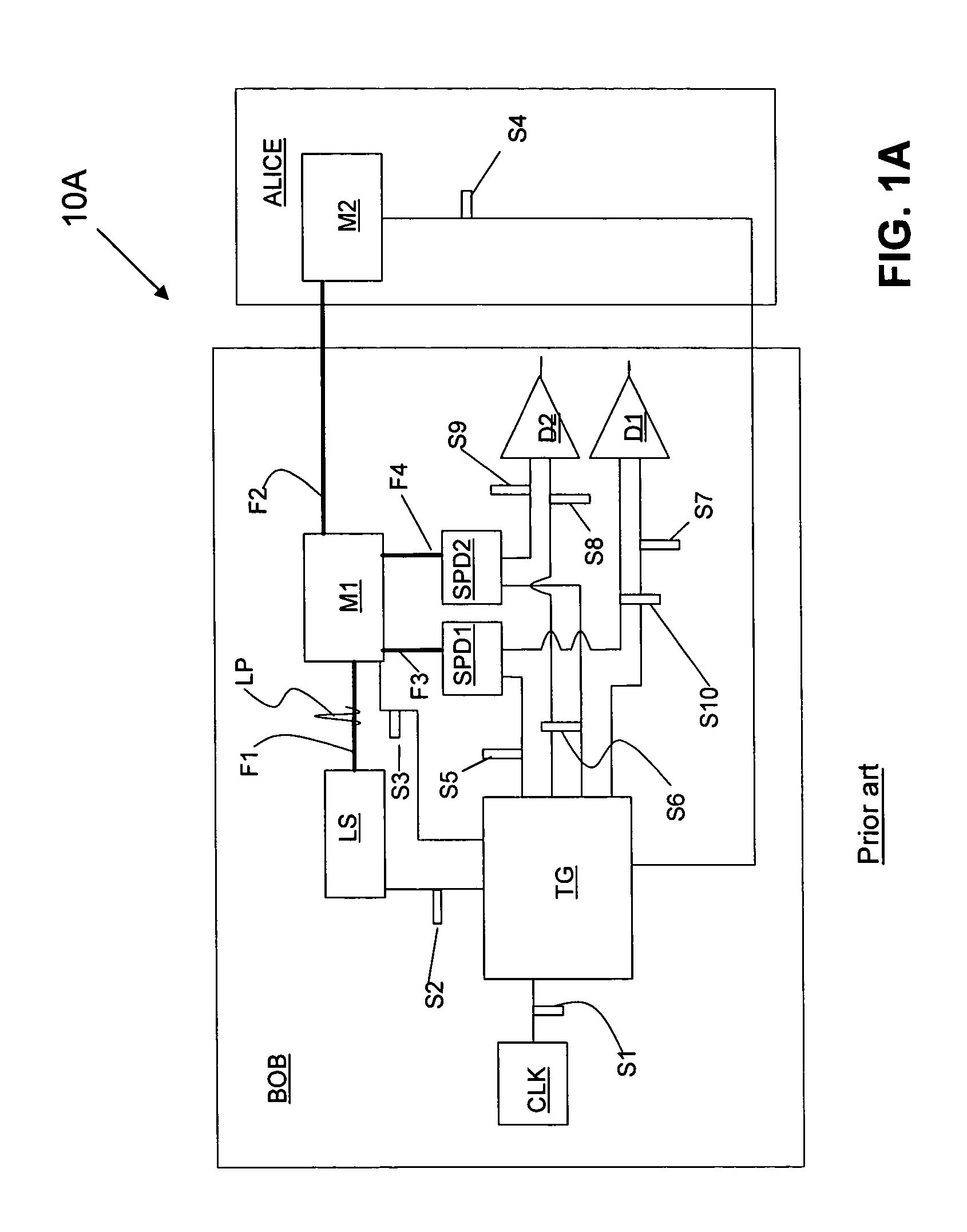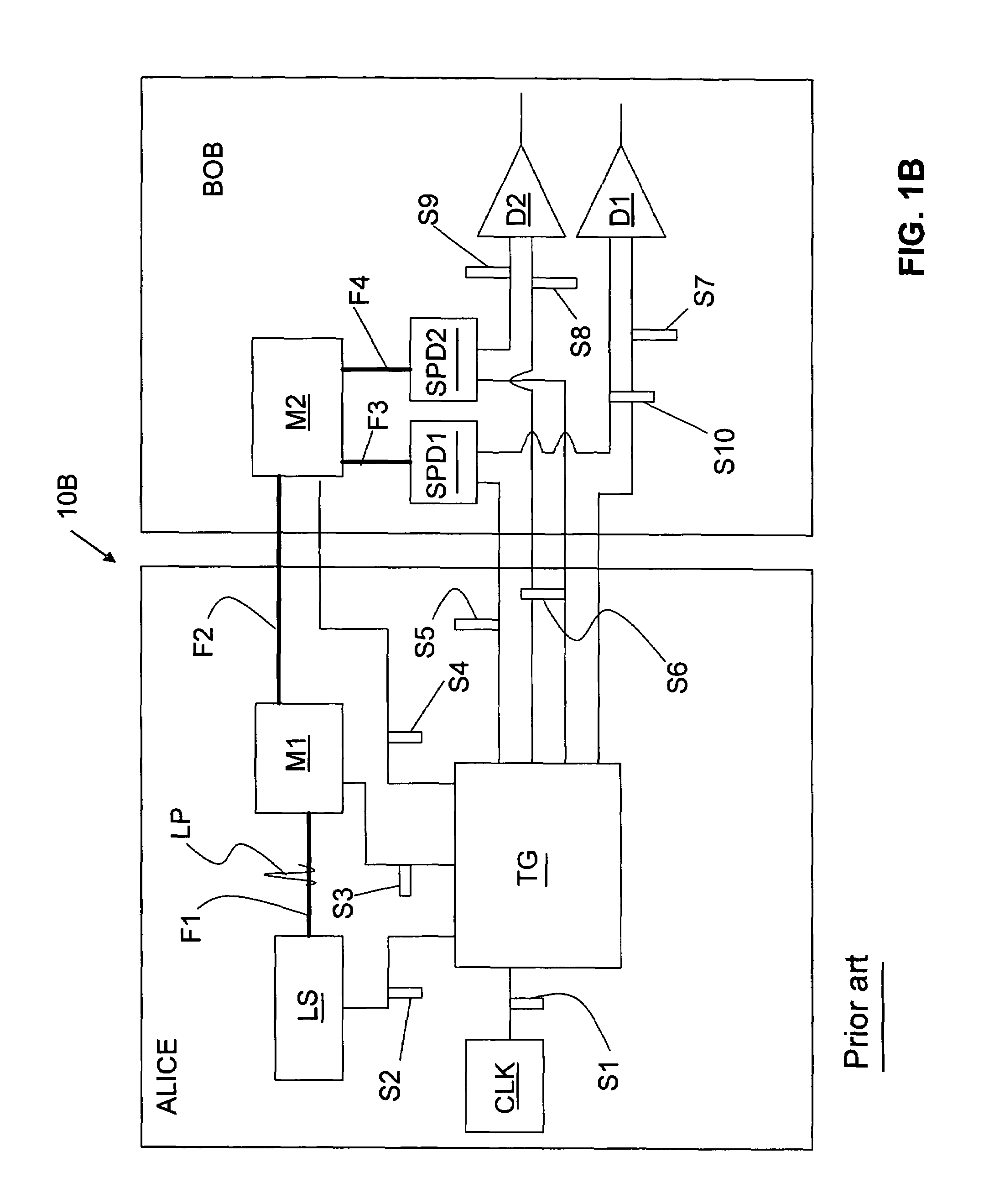Timing error reduction in QKD systems
a quantum key distribution and timing error technology, applied in the field of quantum cryptography, can solve the problems of undue amount of jitter in digital output, timing errors, etc., and achieve the effects of robust jitter reduction, reducing or eliminating timing errors, and reducing the jitter of fpga
- Summary
- Abstract
- Description
- Claims
- Application Information
AI Technical Summary
Benefits of technology
Problems solved by technology
Method used
Image
Examples
Embodiment Construction
[0023]One approach to reducing timing jitter in a QKD system is to modify a retiming circuit previously used in the telecommunications industry to make it suitable for use in a QKD system. FIG. 2 is schematic diagram of a prior art retiming circuit 20 used in classical telecommunications. Circuit 20 includes a receiver RCV, a clock CLK, a retiming block RT, and a transmitter XMT. In circuit 20, the receiver RCV receives a weak electrical signal S20 from input line L1 that has timing jitter due to noise picked up along the transmission path.
[0024]If the transmitter XMT simply sent a copy of signal S20, it would pass on all the timing error in the form of a high transmitted jitter. The retiming block RT samples the receiver RCV at a time determined by its own low-jitter clock, and sends the transmitter XMT new information on the low jitter edge of the clock CLK. A D-type flip-flop is a commonly used in the circuit in retiming block RT to retime the signal. The use of the emitter coupl...
PUM
 Login to View More
Login to View More Abstract
Description
Claims
Application Information
 Login to View More
Login to View More - R&D
- Intellectual Property
- Life Sciences
- Materials
- Tech Scout
- Unparalleled Data Quality
- Higher Quality Content
- 60% Fewer Hallucinations
Browse by: Latest US Patents, China's latest patents, Technical Efficacy Thesaurus, Application Domain, Technology Topic, Popular Technical Reports.
© 2025 PatSnap. All rights reserved.Legal|Privacy policy|Modern Slavery Act Transparency Statement|Sitemap|About US| Contact US: help@patsnap.com



